Best VPN for Linux
Before you buy a VPN suitable for Your Needs from the first company you find, check the reviews. We test, review and rate the top services for Best Vpn Linux. We want to make sure you get the highest quality Best Vpn Linux, the fastest turnaround time, the best support, the lowest price, and the guarantees to back it up. Don’t waste your money on scams or poor-quality providers.
Avoid the scams and use the services that actually work below:

Top 5 Linux VPNs
- Unlimited bandwidth and speed
- 5,224 servers in 60+ countries
- 6 Simultaneous Connections
- Strict No Logs Policy / Based in Panama
- 45 Day Refund Policy
4.9
- Unlimited Bandwidth & No Speed Limits
- 3,000+ VPN servers in 94 countries
- 5 Simultaneous Connections
- No Logging VPN / Based in British Virgin Islands
- 30-day Money-back Guarantee
4.9
- Unlimited Bandwidth & No Speed Limits
- 3,200+ servers in 65 countries
- Unlimited Simultaneous Connections
- No Logging | Based in British Virgin Islands
- 30-Day Money Back Guarantee
4.8
- Unlimited Bandwidth & Speed
- 7300+ servers in 91+ countries
- 7 Simultaneous Connections
- No Logging & Outside of 7 Eyes
- 45-Day Money Back Guarantee
4.7
- Unlimited Bandwidth & No Speed Limits
- 3,000+ Servers in 78+ countries
- 5 Simultaneous Connections
- No Logging & Accepts CryptoCurrency
- 30-day Money-back Guarantee
4.6
FAQs for the best VPN for Linux
What is a VPN and how does it work for Linux?
A VPN is a secure tunnel between your device and another device, most often a website’s server. When you use the Internet with a VPN, your network traffic goes through the VPN. The VPN encrypts the data and then passes the requests to the destination web server. The web server’s response also goes through the VPN, and the VPN passes it to your device with all data still encrypted.
Using a VPN is one of the safest ways to use the Internet since you will be practically anonymous. Your ISP, the government, and all prying eyes won’t know what you’re doing online.
This is true for all operating systems, including Linux. Although Linux has some advantages over other OSs, privacy and online security are still an issue. When you use the Internet, no matter what OS your device is using, all your data can be seen by anyone, especially your snitching ISP. This is why a VPN is needed for Linux.
Does Linux have VPN apps available?
Some of the famous names in the VPN industry don’t work with Linux, so be careful in choosing one. Good thing, there are still reliable VPN apps that are compatible with Linux, and they have a user-friendly command line interface. We tested and ranked some of them above so you won’t have a hard time. Read our reviews now to learn more, and choose the right one for you.
Why do I need a VPN for Linux?
Since you’re looking for a VPN for Linux, you might be one of those people who think that Linux is better than Windows. Well, if you don’t, then you should know that the debate on this issue never ends. So which is better: Linux or Windows?
Whatever the answer is, both operating systems fail in the areas of online privacy and security. This is why you need a VPN for Linux! Protect your online activities and that your identity will remain private.
Another reason why you need a Linux VPN is to circumvent geographical restrictions placed by entertainment companies and the government. No matter how much we want the Internet to be open to everyone from anywhere, this will not happen unless people are using a VPN.
Should I buy a VPN for Linux?
If you believe that the Internet should be an open space for everyone, and that you have the right to online privacy and security, then the answer is yes—you should buy a VPN for Linux. VPNs are the perfect solution to these two global issues for the following reasons:
- – Encryption: All traffic from and to your network will be heavily encrypted when you use a VPN. The latest standard, which is AES with a 256-bit key, and can only be cracked yb the world’s most elite computer scientists – and they’ve got things to do besides see what you’re torrenting! Most VPNs are using this one. As a result, the files you share and all other communications you do over the Internet are safe when you use a VPN.
- – IP address masking: When you use a VPN, you will be prompted to connect to a VPN server. This step is very important, since your chosen server will do all communications on your behalf using its own IP address. That’s how you bypass geo-restrictions—by selecting a server located in a country where there’s no restriction on the content you need.
Whether on Linux, Windows, macOS, and other operating systems, a VPN can consistently protect you and give you access to content that would otherwise be blocked.
What is the best VPN for Linux?
A simple Google search for the best VPN for Linux will show hundreds of VPN providers, all claiming to be the best. We all know that’s not true. You need to test the service to find out, and we already did that part for you. We tested several VPN providers to find out which ones are best for Linux, and you can see those reviews above.
How do I set up a Linux VPN?
The process of setting up a Linux VPN is similar in most distros. However, Ubuntu’s documentation states that you may need to install another network manager package for some VPNs. The following are the general steps in setting up a VPN on Linux:
1: Open the Network Settings. There might be different ways to do this. Normally, you go to System Settings > Network.
2: Add a new network connection by clicking on the plus sign.
3: On the Interface dropdown, select VPN. Click on Create.
4: You will be prompted to select a VPN connection type. Choose the type that’s used by your VPN provider. Keep in mind that OpenVPN is the most secure connection type.
5: Click on Create.
6: Enter the details given by your VPN provider.
7: Once you’re down, you can toggle on and off the VPN connection.
Again, the details might be different when using other Linux distribution, but the general steps remain the same.
Are there free Linux VPN apps available?
There are so many free Linux VPN providers out there—a simple Google search will give you hundreds of options. However, the general problem with free VPN services is that their product isn’t really the VPN—their product is you as well as your personal details. The majority of free VPN providers log your data and usage, and they sell this to third parties. Some also contain malware, and almost all of them will bombard you with invasive ads.
Keep in mind that you can get a Linux VPN for as low as $3 a month. You can even get it for less if you sign up for one year or more.



